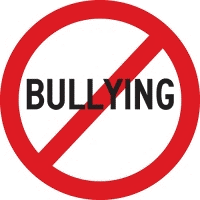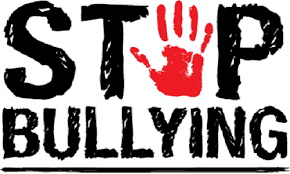At Scissett Middle School bullying is unacceptable FULL STOP!. We therefore do all we can to prevent it, by developing a school ethos in which bullying is not tolerated under any circumstances. Any reported incidents of bullying, where an individual or group have purposefully and/or repeatedly set out to harm or intimidate someone else will be dealt with in line with school policy, with serious consequences in place for perpetrators.
What is bullying?
Bullying is when an individual or group deliberately hurts another or makes them feel unhappy. Bullying behaviour will be repeated over a period of time and is difficult for the victim to defend against. Bullying may be racist, sexist, or homophobic. People can be bullied for any reason; because of the way they look, because of their religion, their age, because of a learning or physical disability for example.
Bullying is a blight on the lives of our children which inhibits full participation in education and learning, cultural, social and leisure activities. Whatever the reason, bullying is never acceptable and will not be tolerated in our school community.
Bullying can take many forms, but three main types are:
- Direct - Physical– hitting, kicking, spitting, demanding money or belongings.
- Direct - Verbal– name calling, insults making racist, sexist, homophobic or offensive remarks.
- Indirect– excluding or ‘blanking’, spreading gossip, damaging property.
- Online - offensive or abusive emails, text messages or posts on social media platforms.
Restorative Approach
At Scissett Middle School, we use restorative approaches to help develop a happier school where the focus is on learning not conflict. Every member of our school community should feel safe and respected and will know that when things go wrong we will do everything we can to help put it right.
Restorative approaches encourage people to think about how their behaviour has affected others. This approach helps pupils to develop respect, responsibility and truth telling.
All our restorative conversations are built on 6 questions:
- What has happened?
- What was I thinking at the time?
- How was I feeling?
- Who has been affected?
- How will I repair the harm that has been caused?
- How can I make sure that this won't happen again?
How do we educate the children about bullying?
Each year, we as a school take part in Anti-Bullying Week (held in the month of November). Anti-Bullying Week shines a spotlight on bullying and encourages all children, teachers and parents to take action against bullying. Over the course of Anti-Bullying Week, we hold a number of school assemblies and have a focus on ‘anti-bullying’ throughout the curriculum.
However, as a school we believe that anti- bullying is not just one week of the school year. We build learning around this issue into our PSHE curriculum and Personal Development programme and ensure the importance of this message is relayed to our pupils regularly.
If you have any concerns about bullying you should speak with your child’s form tutor in the first instance. Please contact the school office who will be able to put you in touch.

